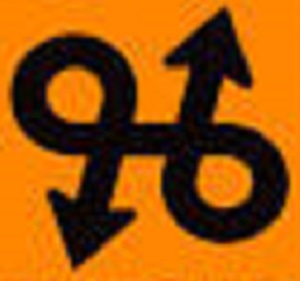Political Science Glossary [1]
Theocracy
A form of government in which the clergy exercise or bestow all legitimate political authority and in which religious law is dominant over civil law and enforced by state agencies.
Monarchy
A form of rule in which there is a single head of state, a monarch, with the title of King (or Queen) or its equivalent; in which the monarch holds his or her office for life; in which the position of monarch normally descends by rules of heredity only to members of a specific royal family; and where the monarch is popularly believed to be possessed of a religious or similar symbolic significance for the state and its institutions that legitimate his or her privileges. When the monarch rules with full or nearly full executive, legislative and judicial powers practically unlimited by constitutional or legal restrictions, the system is often referred to as an “absolute monarchy.” When the powers of the monarch are effectively limited and restricted by law (at least to insure respect for the subjects’ recognized rights to personal freedom and property and often also to limit the monarch’s powers of legislation and taxation), the system is normally referred to as “constitutional monarchy.”
Autocracy
A system of government in which supreme political power to direct all the activities of the state is concentrated in the hands of one person, whose decisions are subject to neither external legal restraints nor regularized mechanisms of popular control (except perhaps for the implicit threat of coup d’etat or mass insurrection).
Oligarchy
Any system of government in which virtually all political power is held by a very small number of wealthy but otherwise unmeritorious people who shape public policy primarily to benefit themselves financially through direct subsidies to their agricultural estates or business firms, lucrative government contracts, and protectionist measures aimed at damaging their economic competitors — while displaying little or no concern for the broader interests of the rest of the citizenry. “Oligarchy” is also used as a collective term to denote all the individual members of the small corrupt ruling group in such a system. The term always has a negative or derogatory connotation in both contemporary and classical usage, in contrast to aristocracy (which sometimes has a derogatory connotation in modern usage, but never in classical).
Dictatorship
Government by a single person (or group) whose discretion in using the powers and resources of the state is unrestrained by any fixed legal or constitutional rules and who is (are) in no effective way held responsible to the general population or their elected representatives.
Aristocracy
A privileged social class whose members possess disproportionately large shares of a society’s wealth, social prestige, educational attainment and political influence, with these advantages having been acquired principally through gift or inheritance from a long line of similarly privileged and cultivated ancestors. The term refers also to a form of government in which the state is effectively controlled by the members of such a class. The term tends to have a somewhat unsavory or derogatory connotation today in the light of democratic theories, but in classical political philosophy it meant rule by “the best people” of the society, who were expected to feel a paternalistic concern for the humbler members of the society that would keep them fromruling in a purely self-seeking fashion.
Elite (elitist) theory
The theoretical view held by many social scientists which holds that American politics is best understood through the generalization that nearly all political power is held by a relatively small and wealthy group of people sharing similar values and interests and mostly coming from relatively similar privileged backgrounds. Most of the top leaders in all or nearly all key sectors of society are seen as recruited from this same social group, and elite theorists emphasize the degree to which interlocking corporate and foundation directorates, old school ties and frequent social interaction tend to link together and facilitate coordination between the top leaders in business, government, civic organizations, educational and cultural establishments and the mass media. This “power elite” can effectively dictate the main goals (if not always the practical means and details) for all really important government policy making (as well as dominate the activities of the major mass media and educational/cultural organizations in society) by virtue of their control over the economic resources of the major business and financial organizations in the country. Their power is seen as based most fundamentally on their personal economic resources and especially on their positions within the top management of the big corporations, and does not really depend upon their ability to garner mass support through efforts to “represent” the interests of broader social groups. Elitist theoreticians differ somewhat among themselves on such questions as how open the power elite is to “new blood,” the exact degree of agreement or disagreement that usually prevails within its ranks, and the degree of genuine concern (or lack thereof) for the broader public welfare that enters into their choices of public policy goals, but all such theorists broadly share the notion that it is these few thousand “movers and shakers” who really run the country and determine the basic directions of public policy, certainly not the manipulated and powerless masses of ordinary voters choosing among candidates at election time.
Empire
A form of conglomerate state encompassing a geographical area or set of areas containing diverse peoples or ethnic groups and ruled by a single central government authority that is primarily identified with one dominant people or ethnic group. The empire thus consists of an imperial center and one or more colonies or other dependent subunits (provinces, protectorates, etc.) whose governments are subordinate to that of the imperial center. Historically, empires have usually first emerged either as the result of dynastic marriages among the royal families of hereditary absolute monarchies or, even more frequently, by an original “core” state expanding through the conquest and incorporation of territories occupied by other peoples, usually followed by the resettlement of substantial numbers of emigrants from the core population who then constitute a privileged governing elite in the newly acquired territories. An empire differs from such other forms of conglomerate state as a federation or confederation by virtue of the specially privileged political status of the core political unit (and often the entire core ethnic group or race) in contrast to the institutionalized inferior status of the other component governmental units and their native populations.
State
1. A specialized type of political organization characterized by a full-time, specialized, professional work force of tax-collectors, soldiers, policemen, bureaucrats and the like that exercises supreme political authority over a defined territory with a permanent population, independent from any enduring external political control and possessing a local predominance of coercive power (always supplemented with moral and remunerative incentives as well) great enough to maintain general obedience to its laws or commands within its territorial borders. The first known states were created in ancient times in Egypt, Mesopotamia, India, China, Mexico and Peru, but it is only in relatively modern times that states have almost completely displaced alternative “stateless” forms of political organization of societies all over the planet. (Roving bands of hunter-gatherers and even fairly sizable and complex tribal societies based on herding or agriculture have existed without any full-time specialized state organization, and these “stateless” forms of political organization have in fact prevailed for all of the prehistory and much of the history of the human species.)
2. One of the component territorial political units in a larger federal state that are so called because, although they actually fall short of full independent statehood or sovereignty, they still possess a very large degree of autonomy in decision-making with respect to most of their internal affairs and are thus also legally allowed to exercise various forms of coercion over their regional populations [Example — the 50 states of the United States.].
Federation
A composite or conglomerate state that consists of several regional governments with a common central government, and in which both regional and central governments each have their own spheres of policy making in which their decisions are normally presumed to be final. The powers of the regional and central governments are almost invariably spelled out in detail in a written constitution, which also normally specifies procedures to be followed for resolving conflicts between the two kinds of government (often by some process of judicial review). Generally in a federation both central and regional governments will possess taxing and enforcement powers over the citizenry and therefore both will maintain their own bureaucratic and police organizations to carry out these powers.
Democracy
A system of government in which effective political power is vested in the people. In older usage (for example, in the writings of the classical Greek and Roman philosophers or in the Federalist Papers), the term was reserved exclusively for governmental systems in which the populace exercised this power directly through general assemblies or referenda to decide the most important questions of law or policy. In more contemporary usage, the term has been broadened to include also what the American Founding Fathers called a republic — a governmental system in which the power of the people is normally exercised only indirectly, through freely elected representatives who are supposed to make government decisions according to the popular will, or at least according to the supposed values and interests of the population.
Republic
Originally, any form of government not headed by an hereditary monarch. In modern American usage, the term usually refers more specifically to a form of government (a.k.a. “representative democracy”) in which ultimate political power is theoretically vested in the people but in which popular control is exercised only intermittently and indirectly through the popular election of government officials and/or delegates to a legislative assembly rather than directly through frequent mass assemblies or legislation by referendum.
Referendum
A vote taken by the general public to decide an important legislative or policy issue directly (rather than having the issue decided by a representative assembly or other legislative agency).
Popular sovereignty
The political/legal principle that all legitimate political authority within a society derives ultimately from the will or, at least, from the generalized consent of the subject population.
Legitimacy
The principle that indicates the acceptance of the decisions of government leaders and officials by (most of) the public on the grounds that these leaders’ acquisition and exercise of power has been in accordance with the society’s generally accepted procedures and political or moral values. Legitimacy may be conferred upon power holders in a variety of ways in different societies, usually involving solemn formal rituals of a religious or quasi-religious nature — royal birth and coronation in monarchies, popular election and “swearing in” in democracies and so on. “Legitimate” rulers typically require less use of physical coercion to enforce their decisions than rulers lacking in legitimacy, because most of the people are apt to feel a moral obligation to obey the former but not the latter. Consequently, people who gain or hold power by illegitimate means tend to work very hard to discover or create ways of endowing themselves with legitimacy after the fact, often by inventing a new ideology or religion and attempting to indoctrinate the people with its legitimating formulas through various forms of propaganda, thus creating moral incentives for the citizenry to obey their government.
A Glossary of Political Economy Terms by Dr. Paul M. Johnson




![Political Science Glossary [1]](https://www.vietthuc.org/wp-content/uploads/2014/03/2014-MAR-10-QUYẾT-TỬ-90x60.jpg)
![Political Science Glossary [1]](https://www.vietthuc.org/wp-content/uploads/2014/03/2014-MAR-10-BẦU-CỬ.DÂN-CHỦ-300-90x60.png)









































